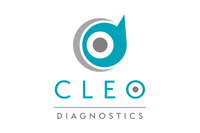T2 Biosystems (NASDAQ:TTOO) has announced it has been awarded a contract worth US$6 million with a potential valuation of up to US$69 million from the Biomedical Advanced Research and Development Authority (BARDA). As quoted in the press release: The contract will enable a significant expansion of the Company’s current portfolio of diagnostics for sepsis-causing pathogens …
T2 Biosystems (NASDAQ:TTOO) has announced it has been awarded a contract worth US$6 million with a potential valuation of up to US$69 million from the Biomedical Advanced Research and Development Authority (BARDA).
As quoted in the press release:
The contract will enable a significant expansion of the Company’s current portfolio of diagnostics for sepsis-causing pathogens and antibiotic-resistance genes, which are designed to improve patient outcomes and reduce the growing threat of antimicrobial resistance. This contract will fund development through U.S. Food & Drug Administration (FDA) submission of new direct-from-blood diagnostic panels that will be run on the T2Dx Instrument and the development of a next generation T2Dx Instrument:
- The first panel developed will be a direct-from-blood panel for detection of biothreat pathogens, including threats such as B. anthracis, F. tularensis, Burkholderia spp., Y. pestis, R. prowazekii, and toxin genes.
- The second panel is expected to cover 99% of all bloodborne bacterial infections by means of ≥36 reported results, which include pan-Gram positive and pan-Gram negative results (detecting >250 species), in addition to the bloodborne antibiotic resistant threats identified by the Centers for Disease Control and Prevention (CDC).
- Along with the new panels, the BARDA award supports the development of a next-generation high-throughput instrument.
“By providing same-day results, T2 Biosystems’ existing technology has made a significant impact on therapy decisions, and this next generation of innovations has the potential to expand on this progress,” said Dr. Minh-Hong Nguyen, Professor of Medicine and Clinical & Translational Science Institute, University of Pittsburgh, and Director, Transplant Infectious Diseases and Antimicrobial Management Program of the University of Pittsburgh Medical Center. “With much more comprehensive coverage of the causative pathogens of bloodstream infections, this technology has the potential to rapidly and accurately diagnose and identify common bacterial causes of BSIs, and allow physicians to get patients started on appropriate therapy much sooner. It is a potential game changer for the way we practice medicine.”



